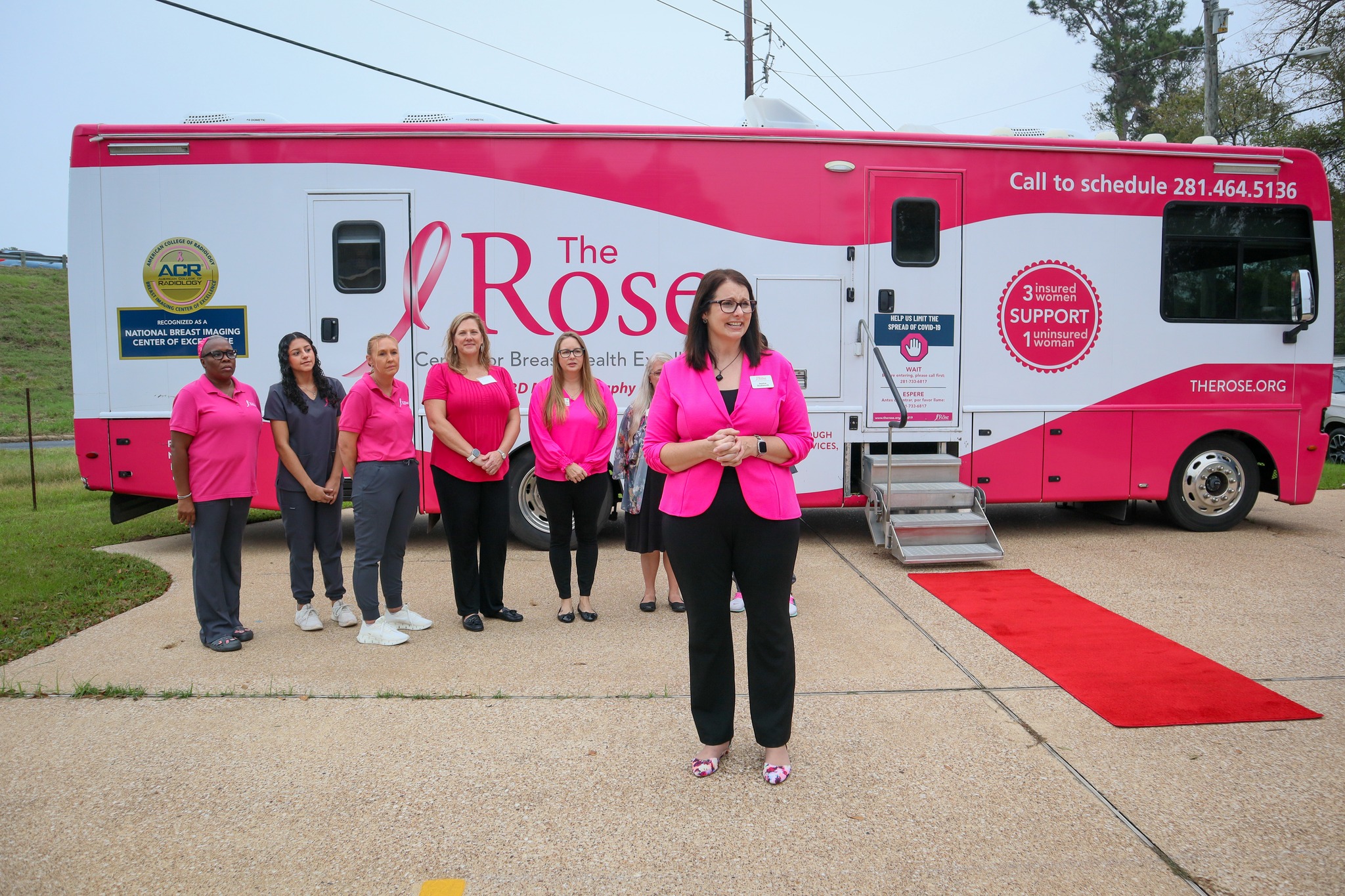- August 21, 2025
New funding brings cancer screenings to more uninsured women in rural Texas

The CPRIT grant supports expanded access to breast, cervical and liver cancer screenings in 25 counties
BRYAN-COLLEGE STATION, Texas—Thousands of uninsured and underinsured women in rural Texas will soon have access to potentially lifesaving cancer screening and prevention services, thanks to a newly awarded $2.5 million grant.
The grant, awarded to the Texas A&M University Health Sciences Center (Texas A&M Health) by the Cancer Prevention and Research Institute of Texas (CPRIT) will re-establish a long-running cancer prevention program, led by Anna Lichorad, MD, clinical assistant professor at the Texas A&M Naresh K. Vashisht College of Medicine.
With the funding, Lichorad and her team plan to expand their services from seven counties to 25 across eastern and southeastern Texas—bringing breast, cervical and liver cancer screening directly to women who need it most.
“The purpose of the grant is to provide services to women who are uninsured or underinsured who can’t get screening for breast and cervical cancer,” Lichorad said. “So, we provide pap smears, mammograms, and then potentially, if those results are abnormal, getting them further diagnostic testing and eventually—if they show any type of cancer—routing them to get to definitive care.”
Alongside mammograms and pap smears, the grant also covers blood test screening for liver cancer associated with hepatitis C.
CPRIT has supported this program since 2013, funding multiple grant cycles over the years. During that time, Lichorad estimates the team directly served around 4,000 women. But through community outreach, health fairs, public education and partnerships with local health workers, the program’s reach extended to about 650,000 women.
With the most recent funding, Lichorad said her team hopes to expand their reach even further.
“There are several barriers that prevent underserved women from accessing the care they need,” she said. “Sometimes, it’s a knowledge barrier: They’re not aware of which types of screenings they may need for prevention. And then oftentimes it’s a financial barrier: The choice is between having to put food on the table or paying for care.”
Alongside financial barriers, Lichorad also cited transportation and language as common barriers for women in rural areas. To help meet women they are, the program partners with with local churches—many of which are primarily Spanish-speaking—and The Rose, a mobile mammogram unit based in Houston. Together, they bring screenings to trusted, community-based locations.
Beyond its immediate health impacts, Lichorad said the program represents a more responsible approach to health care spending.
“Anytime you can prevent an illness instead of having to treat the long-term complications from it—whether that be diabetes or cancers—it’s certainly better and fiscally responsible,” Lichorad said. “Paying for a mammogram that only costs maybe $100 versus a lengthy treatment for cancer and surgeries is certainly much more cost-effective in the end.”
For Lichorad, re-establishing funding for rural cancer prevention programming represents a step toward a healthier future for Texans—especially those in underserved communities.
“Texas is slowly, hopefully, improving those services for all citizens,” she said. “And whether they’re rural or urban, hopefully we’ll continue to expand and maintain that support for Texans everywhere.”

